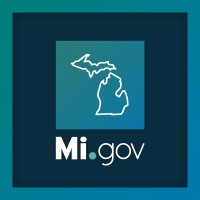
NSW Office of Local Government Company Cyber Security Posture
nsw.gov.auThe Office of Local Government (OLG) is the NSW Government agency responsible for strengthening the sustainability, performance, integrity, transparency and accountability of the local government sector. OLG has a policy, legislative, investigative and program focus in regulating the State’s 128 local councils. The agency also works collaboratively with the local government sector to support local councils to deliver for their local communities. OLG, which is part of the Department of Planning and Environment, is the key adviser to the NSW Government on local government matters.
NOLG Company Details
nswolg
119 employees
4840
922
Government Administration
nsw.gov.au
Scan still pending
NSW_3013160
In-progress
Between 900 and 1000
This score is AI-generated and less favored by cyber insurers, who prefer the TPRM score.
 NOLG Global Score
NOLG Global Score.png)

NSW Office of Local Government Company Scoring based on AI Models
| Model Name | Date | Description | Current Score Difference | Score |
|---|---|---|---|---|
| AVERAGE-Industry | 03-12-2025 | This score represents the average cybersecurity rating of companies already scanned within the same industry. It provides a benchmark to compare an individual company's security posture against its industry peers. | N/A | Between 900 and 1000 |
NSW Office of Local Government Company Cyber Security News & History
| Entity | Type | Severity | Impact | Seen | Url ID | Details | View |
|---|---|---|---|---|---|---|---|
| NSW Office of Local Government | Breach | 100 | 6 | 02/2022 | NSW234711522 | Link | |
Rankiteo Explanation : Attack threatening the economy of a geographical regionDescription: The NSW government's QR code data breach accidently exposed the regional addresses of more than 500,000 organisations including defence sites, a missile maintenance unit and domestic violence shelters The addresses collected by the NSW government including correctional facilities, critical infrastructure networks including power stations and tunnel entry sites as well as dozens of shelters and crisis accommodation centres for women across the state was also found NSW data website. The cyber experts raised the alarm to the NSW government to secure the data immediately. | |||||||
| NSW Department of Education | Cyber Attack | 100 | 5 | 07/2021 | NSW16403223 | Link | |
Rankiteo Explanation : Attack threatening the organization’s existenceDescription: The New South Wales (NSW) education department in Australia stated that their internal system had been a victim of a cyber attack. The department took some systems offline while conducting its investigation because protecting student and staff data is of the utmost importance. The department has reported the issue to the state's police and federal government organizations and collaborated with Cyber Security NSW to find a solution. | |||||||
| NSW Police Force | Data Leak | 85 | 3 | 08/2020 | NSW212518123 | Link | |
Rankiteo Explanation : Attack with significant impact with internal employee data leaksDescription: The NSW Police leaked the emails of over 150 complainants. The Complainants contacted them in order to raise concerns regarding officers’ use of force following the Sydney Black Lives Matter protest. According to section 169A of the Police Act 1990 (NSW) a member of the NSW Police Force must not disclose to any person the identity of a complainant unless the disclosure is made in accordance with guidelines established by the Commissioner, with the consent of the complainant, in a situation where it is required by law, or for the purposes of any legal proceedings before a court or tribunal. It was a complete betrayal of public trust and accountability. | |||||||
| Transport for NSW | Data Leak | 60 | 3 | 02/2021 | TRA23379923 | Link | |
Rankiteo Explanation : Attack with significant impact with internal employee data leaksDescription: A cyber attack on an Accellion-owned file transfer system has been identified as having an effect on Transport for New South Wales (TfNSW). Some Transport for NSW information was obtained prior to the attack on Accellion servers being stopped. According to TfNSW, the state government investigation is being managed by Cyber Security NSW with the aid of forensic experts. In order to investigate the implications of the incident, particularly how it may have affected customer data, the organisation said it is closely collaborating with Cyber Security NSW. | |||||||
NSW Office of Local Government Company Subsidiaries

The Office of Local Government (OLG) is the NSW Government agency responsible for strengthening the sustainability, performance, integrity, transparency and accountability of the local government sector. OLG has a policy, legislative, investigative and program focus in regulating the State’s 128 local councils. The agency also works collaboratively with the local government sector to support local councils to deliver for their local communities. OLG, which is part of the Department of Planning and Environment, is the key adviser to the NSW Government on local government matters.
Access Data Using Our API

Get company history
.png)
NOLG Cyber Security News
Annual Cyber Threat Report 2023-2024
This year's report outlines the cyber threat posed to Australian governments, critical infrastructure, businesses and households. It shows how ...
Australian councils urged to boost cyber threat training
Cyberattacks on Australian local councils are surging, with under half providing essential cybersecurity training, leaving systems ...
NSW Govt blocks access to DeepSeek AI
A New South Wales government department has blocked Chinese artificial intelligence chatbot DeepSeek from its devices and systems over privacy concerns.
Be cyber proactive, council leaders told
Local government should have in place a cyberattack response plan, says a security expert. “Understanding what you would do and who would be responsible for ...
Cyber Security in Local Government
Councils need to manage cyber security risks to ensure their information, data and systems are appropriately safeguarded. Councils also need to ...
Local councils still lack cyber preparedness, NSW auditor-general’s report warns
Local councils are failing to effectively implement risk management processes and cyber security policies, a recent NSW Auditor General's Report ...
Future of South Australian Government Summit 2024
Connect with top public sector ICT & Digital executives, plus trusted technology partners at the FSTGov Future of SA Government Summit 2024.
Department of Home Affairs Website
We will be doing systems maintenance on some of our online systems between 6pm and 9pm on Sunday 7 July 2019 (AEST).
Muswellbrook cyber incident investigated
Muswellbrook Shire Council has completed an investigation into a cyber incident which occurred late last year.

NOLG Similar Companies

State of Missouri
Build the Missouri of tomorrow. Ensure a strong foundation today. Join a group of innovative team members focused on driving the State of Missouri forward. As public servants, our team members have the opportunity to produce work that is both lasting and important. This work serves to protect famil

Københavns Kommune
Københavns Kommune er Danmarks største arbejdsplads med ca. 45.000 medarbejdere. Vi udvikler hovedstaden og servicerer over 500.000 københavnere. Vores mål er at fastholde og udvikle København som en af verdens bedste byer at bo i – og skabe øget vækst gennem viden, innovation og beskæftigelse. Fi

City of Amsterdam
Working for Amsterdam means working for the most beautiful city in the world. Think of its rich history, the role Amsterdam plays internationally, and events such as Sail, Gay Pride and King’s Day. Of course everybody wants to visit Amsterdam, or work or live here. As you can probably imagine, wo

City of Houston
Home to a respected and energetic cultural arts scene, celebrated restaurants featuring flavors from 35 countries, world-renowned theater groups and the brains behind U.S. space exploration, Houston is a diverse metropolis brimming with personality. With nearly 21,000 concerts, plays, exhibition

State of Michigan
Every day the contributions and achievements of State of Michigan employees have a direct impact on over 10 million Michiganders across the state. If you're looking for a fulfilling career in state government that can make a real difference in the lives of others, you can find your place working wit

Queensland Department of Education
We are committed to equity and excellence in education for Queenslanders at every stage of their development. We strive to deliver a progressive, high-performing system where every young Queenslander can thrive and realise their full potential. With a workforce of 95,000 people in approximately 1,30

Frequently Asked Questions (FAQ) on Cybersecurity Incidents
NOLG CyberSecurity History Information
Total Incidents: According to Rankiteo, NOLG has faced 4 incidents in the past.
Incident Types: The types of cybersecurity incidents that have occurred include ['Breach', 'Cyber Attack', 'Data Leak'].
Total Financial Loss: The total financial loss from these incidents is estimated to be {total_financial_loss}.
Cybersecurity Posture: The company's overall cybersecurity posture is described as The Office of Local Government (OLG) is the NSW Government agency responsible for strengthening the sustainability, performance, integrity, transparency and accountability of the local government sector. OLG has a policy, legislative, investigative and program focus in regulating the State’s 128 local councils. The agency also works collaboratively with the local government sector to support local councils to deliver for their local communities. OLG, which is part of the Department of Planning and Environment, is the key adviser to the NSW Government on local government matters..
Detection and Response: The company detects and responds to cybersecurity incidents through {description_of_detection_and_response_process}.
Incident Details
Incident 1: Ransomware Attack
Title: {Incident_Title}
Description: {Brief_description_of_the_incident}
Date Detected: {Detection_Date}
Date Publicly Disclosed: {Disclosure_Date}
Date Resolved: {Resolution_Date}
Type: {Type_of_Attack}
Attack Vector: {Attack_Vector}
Vulnerability Exploited: {Vulnerability}
Threat Actor: {Threat_Actor}
Motivation: {Motivation}
Incident 2: Data Breach
Title: {Incident_Title}
Description: {Brief_description_of_the_incident}
Date Detected: {Detection_Date}
Date Publicly Disclosed: {Disclosure_Date}
Date Resolved: {Resolution_Date}
Type: {Type_of_Attack}
Attack Vector: {Attack_Vector}
Vulnerability Exploited: {Vulnerability}
Threat Actor: {Threat_Actor}
Motivation: {Motivation}
Common Attack Types: The most common types of attacks the company has faced are ['Data Leak'].
Identification of Attack Vectors: The company identifies the attack vectors used in incidents through {description_of_identification_process}.
Impact of the Incidents
Incident 1: Ransomware Attack
Financial Loss: {Financial_Loss}
Data Compromised: {Data_Compromised}
Systems Affected: {Systems_Affected}
Downtime: {Downtime}
Operational Impact: {Operational_Impact}
Conversion Rate Impact: {Conversion_Rate_Impact}
Revenue Loss: {Revenue_Loss}
Customer Complaints: {Customer_Complaints}
Brand Reputation Impact: {Brand_Reputation_Impact}
Legal Liabilities: {Legal_Liabilities}
Identity Theft Risk: {Identity_Theft_Risk}
Payment Information Risk: {Payment_Information_Risk}
Incident 2: Data Breach
Financial Loss: {Financial_Loss}
Data Compromised: {Data_Compromised}
Systems Affected: {Systems_Affected}
Downtime: {Downtime}
Operational Impact: {Operational_Impact}
Conversion Rate Impact: {Conversion_Rate_Impact}
Revenue Loss: {Revenue_Loss}
Customer Complaints: {Customer_Complaints}
Brand Reputation Impact: {Brand_Reputation_Impact}
Legal Liabilities: {Legal_Liabilities}
Identity Theft Risk: {Identity_Theft_Risk}
Payment Information Risk: {Payment_Information_Risk}
Average Financial Loss: The average financial loss per incident is {average_financial_loss}.
Commonly Compromised Data Types: The types of data most commonly compromised in incidents are {list_of_commonly_compromised_data_types}.
Incident 1: Ransomware Attack
Entity Name: {Entity_Name}
Entity Type: {Entity_Type}
Industry: {Industry}
Location: {Location}
Size: {Size}
Customers Affected: {Customers_Affected}
Incident 2: Data Breach
Entity Name: {Entity_Name}
Entity Type: {Entity_Type}
Industry: {Industry}
Location: {Location}
Size: {Size}
Customers Affected: {Customers_Affected}
Response to the Incidents
Incident 1: Ransomware Attack
Incident Response Plan Activated: {Yes/No}
Third Party Assistance: {Yes/No}
Law Enforcement Notified: {Yes/No}
Containment Measures: {Containment_Measures}
Remediation Measures: {Remediation_Measures}
Recovery Measures: {Recovery_Measures}
Communication Strategy: {Communication_Strategy}
Adaptive Behavioral WAF: {Adaptive_Behavioral_WAF}
On-Demand Scrubbing Services: {On_Demand_Scrubbing_Services}
Network Segmentation: {Network_Segmentation}
Enhanced Monitoring: {Enhanced_Monitoring}
Incident 2: Data Breach
Incident Response Plan Activated: {Yes/No}
Third Party Assistance: {Yes/No}
Law Enforcement Notified: {Yes/No}
Containment Measures: {Containment_Measures}
Remediation Measures: {Remediation_Measures}
Recovery Measures: {Recovery_Measures}
Communication Strategy: {Communication_Strategy}
Adaptive Behavioral WAF: {Adaptive_Behavioral_WAF}
On-Demand Scrubbing Services: {On_Demand_Scrubbing_Services}
Network Segmentation: {Network_Segmentation}
Enhanced Monitoring: {Enhanced_Monitoring}
Incident Response Plan: The company's incident response plan is described as {description_of_incident_response_plan}.
Third-Party Assistance: The company involves third-party assistance in incident response through {description_of_third_party_involvement}.
Data Breach Information
Incident 2: Data Breach
Type of Data Compromised: {Type_of_Data}
Number of Records Exposed: {Number_of_Records}
Sensitivity of Data: {Sensitivity_of_Data}
Data Exfiltration: {Yes/No}
Data Encryption: {Yes/No}
File Types Exposed: {File_Types}
Personally Identifiable Information: {Yes/No}
Prevention of Data Exfiltration: The company takes the following measures to prevent data exfiltration: {description_of_prevention_measures}.
Handling of PII Incidents: The company handles incidents involving personally identifiable information (PII) through {description_of_handling_process}.
Ransomware Information
Incident 1: Ransomware Attack
Ransom Demanded: {Ransom_Amount}
Ransom Paid: {Ransom_Paid}
Ransomware Strain: {Ransomware_Strain}
Data Encryption: {Yes/No}
Data Exfiltration: {Yes/No}
Ransom Payment Policy: The company's policy on paying ransoms in ransomware incidents is described as {description_of_ransom_payment_policy}.
Data Recovery from Ransomware: The company recovers data encrypted by ransomware through {description_of_data_recovery_process}.
Regulatory Compliance
Incident 1: Ransomware Attack
Regulations Violated: {Regulations_Violated}
Fines Imposed: {Fines_Imposed}
Legal Actions: {Legal_Actions}
Regulatory Notifications: {Regulatory_Notifications}
Incident 2: Data Breach
Regulations Violated: {Regulations_Violated}
Fines Imposed: {Fines_Imposed}
Legal Actions: {Legal_Actions}
Regulatory Notifications: {Regulatory_Notifications}
Regulatory Frameworks: The company complies with the following regulatory frameworks regarding cybersecurity: {list_of_regulatory_frameworks}.
Ensuring Regulatory Compliance: The company ensures compliance with regulatory requirements through {description_of_compliance_measures}.
Lessons Learned and Recommendations
Incident 1: Ransomware Attack
Lessons Learned: {Lessons_Learned}
Incident 2: Data Breach
Lessons Learned: {Lessons_Learned}
Incident 1: Ransomware Attack
Recommendations: {Recommendations}
Incident 2: Data Breach
Recommendations: {Recommendations}
Key Lessons Learned: The key lessons learned from past incidents are {list_of_key_lessons_learned}.
Implemented Recommendations: The company has implemented the following recommendations to improve cybersecurity: {list_of_implemented_recommendations}.
References
Additional Resources: Stakeholders can find additional resources on cybersecurity best practices at {list_of_additional_resources}.
Investigation Status
Incident 1: Ransomware Attack
Investigation Status: {Investigation_Status}
Incident 2: Data Breach
Investigation Status: {Investigation_Status}
Communication of Investigation Status: The company communicates the status of incident investigations to stakeholders through {description_of_communication_process}.
Stakeholder and Customer Advisories
Incident 1: Ransomware Attack
Stakeholder Advisories: {Stakeholder_Advisories}
Customer Advisories: {Customer_Advisories}
Incident 2: Data Breach
Stakeholder Advisories: {Stakeholder_Advisories}
Customer Advisories: {Customer_Advisories}
Advisories Provided: The company provides the following advisories to stakeholders and customers following an incident: {description_of_advisories_provided}.
Initial Access Broker
Incident 1: Ransomware Attack
Entry Point: {Entry_Point}
Reconnaissance Period: {Reconnaissance_Period}
Backdoors Established: {Backdoors_Established}
High Value Targets: {High_Value_Targets}
Data Sold on Dark Web: {Yes/No}
Incident 2: Data Breach
Entry Point: {Entry_Point}
Reconnaissance Period: {Reconnaissance_Period}
Backdoors Established: {Backdoors_Established}
High Value Targets: {High_Value_Targets}
Data Sold on Dark Web: {Yes/No}
Monitoring and Mitigation of Initial Access Brokers: The company monitors and mitigates the activities of initial access brokers through {description_of_monitoring_and_mitigation_measures}.
Post-Incident Analysis
Incident 1: Ransomware Attack
Root Causes: {Root_Causes}
Corrective Actions: {Corrective_Actions}
Incident 2: Data Breach
Root Causes: {Root_Causes}
Corrective Actions: {Corrective_Actions}
Post-Incident Analysis Process: The company's process for conducting post-incident analysis is described as {description_of_post_incident_analysis_process}.
Corrective Actions Taken: The company has taken the following corrective actions based on post-incident analysis: {list_of_corrective_actions_taken}.
Additional Questions
General Information
Ransom Payment History: The company has {paid/not_paid} ransoms in the past.
Last Ransom Demanded: The amount of the last ransom demanded was {last_ransom_amount}.
Last Attacking Group: The attacking group in the last incident was {last_attacking_group}.
Incident Details
Most Recent Incident Detected: The most recent incident detected was on {most_recent_incident_detected_date}.
Most Recent Incident Publicly Disclosed: The most recent incident publicly disclosed was on {most_recent_incident_publicly_disclosed_date}.
Most Recent Incident Resolved: The most recent incident resolved was on {most_recent_incident_resolved_date}.
Impact of the Incidents
Highest Financial Loss: The highest financial loss from an incident was {highest_financial_loss}.
Most Significant Data Compromised: The most significant data compromised in an incident was {most_significant_data_compromised}.
Most Significant System Affected: The most significant system affected in an incident was {most_significant_system_affected}.
Response to the Incidents
Third-Party Assistance in Most Recent Incident: The third-party assistance involved in the most recent incident was {third_party_assistance_in_most_recent_incident}.
Containment Measures in Most Recent Incident: The containment measures taken in the most recent incident were {containment_measures_in_most_recent_incident}.
Data Breach Information
Most Sensitive Data Compromised: The most sensitive data compromised in a breach was {most_sensitive_data_compromised}.
Number of Records Exposed: The number of records exposed in the most significant breach was {number_of_records_exposed}.
Ransomware Information
Highest Ransom Demanded: The highest ransom demanded in a ransomware incident was {highest_ransom_demanded}.
Highest Ransom Paid: The highest ransom paid in a ransomware incident was {highest_ransom_paid}.
Regulatory Compliance
Highest Fine Imposed: The highest fine imposed for a regulatory violation was {highest_fine_imposed}.
Most Significant Legal Action: The most significant legal action taken for a regulatory violation was {most_significant_legal_action}.
Lessons Learned and Recommendations
Most Significant Lesson Learned: The most significant lesson learned from past incidents was {most_significant_lesson_learned}.
Most Significant Recommendation Implemented: The most significant recommendation implemented to improve cybersecurity was {most_significant_recommendation_implemented}.
References
Most Recent Source: The most recent source of information about an incident is {most_recent_source}.
Most Recent URL for Additional Resources: The most recent URL for additional resources on cybersecurity best practices is {most_recent_url}.
Investigation Status
Current Status of Most Recent Investigation: The current status of the most recent investigation is {current_status_of_most_recent_investigation}.
Stakeholder and Customer Advisories
Most Recent Stakeholder Advisory: The most recent stakeholder advisory issued was {most_recent_stakeholder_advisory}.
Most Recent Customer Advisory: The most recent customer advisory issued was {most_recent_customer_advisory}.
Initial Access Broker
Most Recent Entry Point: The most recent entry point used by an initial access broker was {most_recent_entry_point}.
Most Recent Reconnaissance Period: The most recent reconnaissance period for an incident was {most_recent_reconnaissance_period}.
Post-Incident Analysis
Most Significant Root Cause: The most significant root cause identified in post-incident analysis was {most_significant_root_cause}.
Most Significant Corrective Action: The most significant corrective action taken based on post-incident analysis was {most_significant_corrective_action}.
What Do We Measure?
















Every week, Rankiteo analyzes billions of signals to give organizations a sharper, faster view of emerging risks. With deeper, more actionable intelligence at their fingertips, security teams can outpace threat actors, respond instantly to Zero-Day attacks, and dramatically shrink their risk exposure window.
These are some of the factors we use to calculate the overall score:
Identify exposed access points, detect misconfigured SSL certificates, and uncover vulnerabilities across the network infrastructure.
Gain visibility into the software components used within an organization to detect vulnerabilities, manage risk, and ensure supply chain security.
Monitor and manage all IT assets and their configurations to ensure accurate, real-time visibility across the company's technology environment.
Leverage real-time insights on active threats, malware campaigns, and emerging vulnerabilities to proactively defend against evolving cyberattacks.




